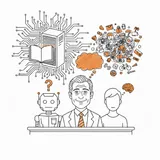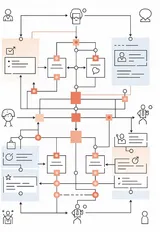The AI Act Is Here. But It Wasn't Built for the AI That's Coming
The Law of Yesterday for the AI of Tomorrow

The Law of Yesterday for the AI of Tomorrow

An AI agent represents a leap from the predictive models and chat interfaces we use today. Instead of just responding to commands, agents are active systems designed to accomplish goals.

Winston Weinberg's Davos interview had one line that changes positioning for legal tech companies and procurement for in-house teams: law firms will build "technology arms" within two years. Not technology partnerships. Internal technology capabilities.

Ultimately, the study serves as a crucial reality check. The goal isn't just to build an AI that can produce fluent text, but one that can reflect the complex, messy, and nuanced reality of human judgment.

New research shows AI agents fail systematically: when they can't handle visual work, they fabricate data. CMU and Stanford researchers found agents invented restaurant names and transaction amounts when unable to parse receipts.

The question isn't whether AI agents will mediate customer relationships. It's whether you'll have any visibility when they do.

This behavior appeared driven by empathy for users in difficult circumstances.

"The in-house teams are like about a year behind I’d say... most of them now are interested in like piloting the tools and checking them out, but change management across a lot of in-house teams [hasn't] happened." — Winston Weinberg, Co-Founder & CEO, Harvey
